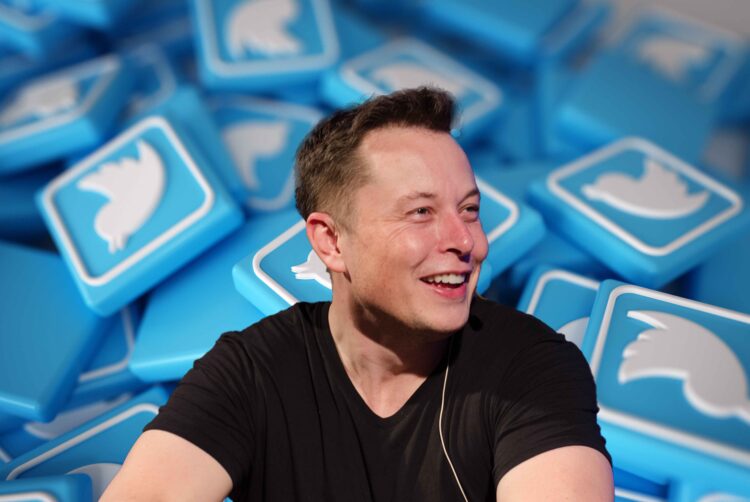Thank you, Elon Musk

Opinion: 100% Media 0% Nonsense
It’s a sad day as I’m closing my Twitter account a year after Elon Musk took charge, writes the editor. But every clown has a silver lining.
Hi Elon! You don’t know me but I just wanted to thank you. It’s been almost a year since you were forced, kicking and screaming, to buy Twitter, after you tried to back out of a woefully over-inflated original bid. I predicted that your stewardship of this company would be an unmitigated disaster.
But it’s been so much more than that. The depth of your failure has substantially improved my wellbeing.
Let me explain.
I used to believe, as many well-meaning younger journalists did a decade ago, that you had to be active on social media to be a success in the internet age. Many of us believed that Twitter was the ‘town square’ and that it unlocked a whole world of contacts, ideas and audiences that would become essential for anyone involved in news or specialist reporting.
Sure, there were many problems with Twitter, as there were with all social media. Content moderation is a fundamentally tough issue for any platform that hosts user-generated content. On the one hand, US and European law gives you the freedom to enable people to post whatever hateful garbage they want. On the other, advertisers will walk away when the atmosphere is poisoned too much.
Angry, spoilt child
The Donald Trump presidential nightmare (which every sane person in the Western World hopes will not return for a sequel next year), really exposed the rot that lies at the heart of social media’s business model. To increase advertising revenue, you need engagement. The quickest and most reliable form of engagement is outrage, and gigantic morons like Trump are instigators of rage like no other.
This creates a problem in the long-term. You can’t keep allowing ever more outrageous content to drive engagement if your goal is to perpetually increase ad revenue. There are only so many fly-by-night Bitcoin trading instructors to fill a massive Unilever-shaped hole if your platform is seen as ‘unsafe’ by major advertisers.
Rather than tackling this issue head-on when taking over Twitter a year ago, you decided to make it even worse. You said would you let Trump back on after he was banned for using Twitter to organise a coup against the US government (I still have to reassure myself that I didn’t dream this). You got rid of the whole Twitter product safety team. Not only that, you insinuated the former head of safety at Twitter was a paedophile, which forced him to flee his home following a torrent of threats.
It’s clear that any responsible social media company would have told you to leave a long time ago, and it’s even clearer that you have no business running one.
But it turns out that my fears about you being an evil genius were completely misplaced. You are, in fact, nothing more than an angry, spoilt child. The way you’ve driven Twitter completely off a cliff, whether it’s by crashing what little reputation it had, or by driving 60% of adspend away, has given me comfort that you could not use this company to become more influential.
Resetting what media ‘value’ means
You’ve also given me so much time back. At some point, every regular Twitter user will begin to realise just how much time they’ve been spending on the platform every day. You could easily spend up to three hours — an eighth of a day! — scrolling through a constantly updating feed, replying to direct messages, debating with strangers about trivial nonsense, and complaining about why a newsbrand’s headline ‘got it completely wrong’.
There is obviously a benefit to ‘microblogging’ services like Twitter. But I struggle to see how anyone, journalist or otherwise, needs to let it become such a major occupier of time and effort in your daily life.
So I thank you most of all for the single dumbest thing you did: significantly limit the exposure that a tweet could have unless the user coughed up money for a ‘blue tick’ membership. Suddenly my tweets (which almost exclusively included discussion about my work writing about media and advertising) were being seen by just dozens of people instead of thousands.
Forced with the choice to pay, you made me realise that Twitter just isn’t worth it. The whole social media ‘game’ isn’t worth it. Vapid, superficial, phoney digital ‘relationships’ aren’t worth it.
Imposter CEO syndrome
I’m thankful because this was the trigger for me taking a hard look at all my digital usage behaviour. I am now extremely mindful about picking up my phone at all, let alone allowing myself to mindlessly swipe through a social media feed.
Perhaps my children will be thankful to you when they are older, too. The impact of social media on children and young people is now well documented, whether it’s due to bullying, unrealistic attitudes, sexualisation of young people or bigotry. But your ruination of Twitter, and the motivation to reappraise my whole approach to digital media, means I can have a much richer conversation with my children about why smartphones and the internet are potentially very dangerous.
Thanks to the books I’ve since discovered (such as Digital Minimalism by Cal Newport, or The Attention Merchants by Tim Wu), I feel more confident explaining to them that smartphones, and internet products more generally, are more like casinos than they are ‘entertainment’ or ‘news’ services: they are addictive because we’re always looking to see if our latest post ‘went viral’, like a punter checking to see if their horse has placed.
And finally, I’d like to thank you for hiring Linda Yaccarino as your “CEO”. Her appearance at the Code conference last week, in which she genuinely didn’t even appear to know you had just announced that Twitter would move to force all users to become paid subscribers, was truly hilarious. At every step you’ve undermined her and shown how even one of US television’s most respected commercial bosses can be reduced to a nonentity within the space of mere months.
While some would view that as awful management, I see it as a welcome corrective to my own imposter syndrome. Whenever I’m having a bad day at work, I’ll play a few minutes of that car-crash interview to remind myself that it could always be worse. And for this I thank you, too.
So, as I say goodbye to Twitter, or X, or whatever you decide to call it next week, let me one more time say ‘thank you’ for helping me realise what an insidious waste of time your grubby little social media platform was. Good riddance to X, good riddance to you, and good riddance to low-value attention economy platforms that make us meaner and stupider.
 Omar Oakes is editor-in-chief of The Media Leader and leads the publication’s TV coverage.
Omar Oakes is editor-in-chief of The Media Leader and leads the publication’s TV coverage.
‘100% Media 0% Nonsense’ is a weekly column about the state of media and advertising. Make sure you sign up to our daily newsletter to get this column in your inbox every Monday.
NEXT WEEK: Omar will interview Havas CEO Yannick Bolloré, S4 Capital and WPP founder Sir Martin Sorrell, and The Sun EVP publisher Dominic Carter at The Future of Media in London.




